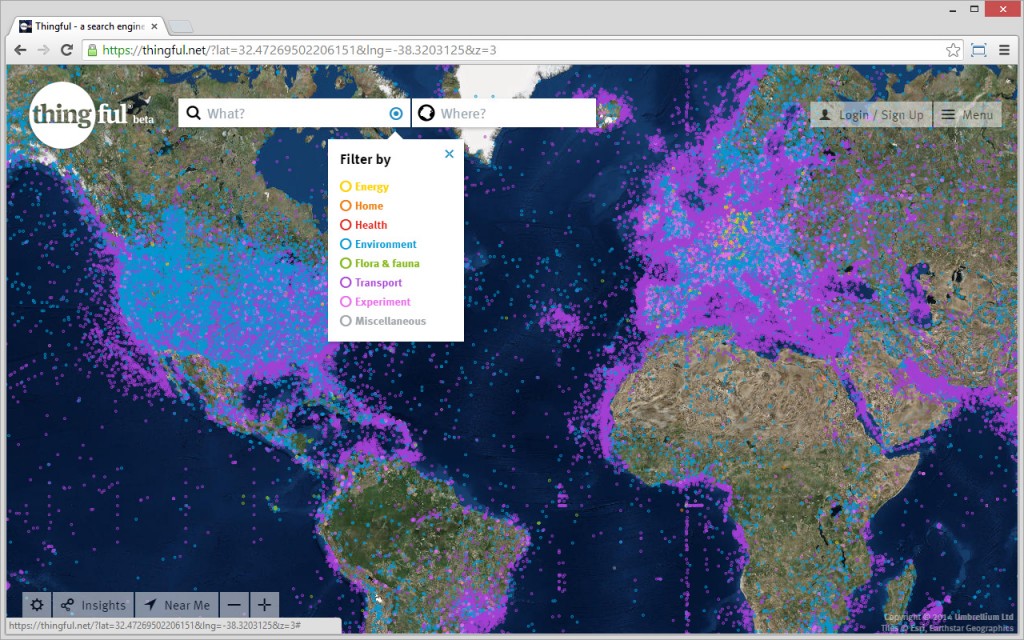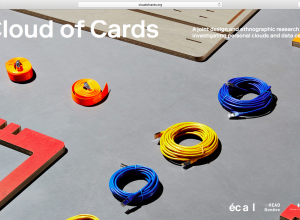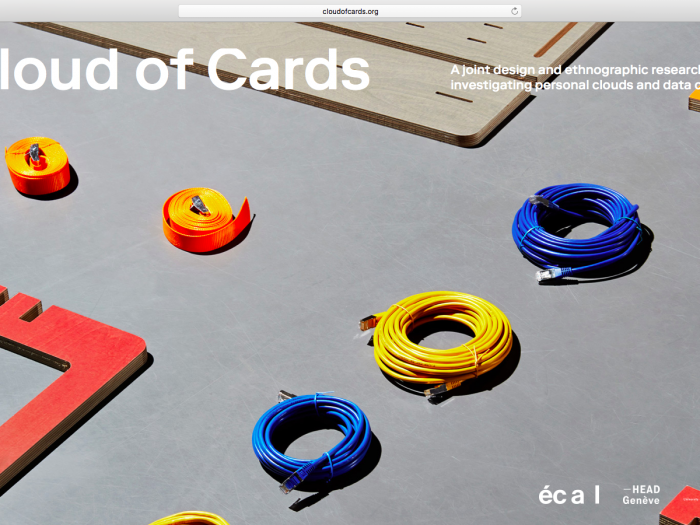Note: Thingful is a “search engine” (beta version) for data and artifacts/sensors that produce data (the coming “Internet of Things” so to say, but also and mainly weather stations, aircrafts and Rastracks at this day). Already quite loaded, the content of the search engine and its map will with no doubt explode in the close future. It is a project by former creators of Pachube (in particular Usman Haque), which was an open webservice to “store, share and discover” data from realtime sensors, now sold and therefore private… It was sold to LogMeIn in 2011 (which is somehow a sad destiny for an open data project, but this is a different story) and became then Xively.

Objects that produce data, from cities to Arduinos or mesh of sensors, through boats, trains and airplanes, etc. will with no doubt become major clients for cloud services, in parallel to the ones we already know: being distributed in the environment with very low computing capacities, these devices will just become the perfect kind of devices for such services, in need of delocalized and third parties computing.
Thingful is a search engine for The Public Internet of Things, providing a geographical index of where things are, who owns them, and how and why they are used.
Today, millions of people and organisations around the world already have and use connected ‘things’, ranging from energy monitors, weather stations and pollution sensors to animal trackers, geiger counters and shipping containers. Many choose to, or would like to, make their data available to third parties – either directly as a public resource or channeled through apps and analytical tools.
Thingful organises ‘things’ around locations and categories and structures ownership around Twitter profiles (which can be either people or organisations), enabling citizens to discuss why and how they are using their devices and data. Because, the ‘who’, ‘why’ and ‘where’ are ultimately far more important in The Public Internet of Things than the ‘what’.


